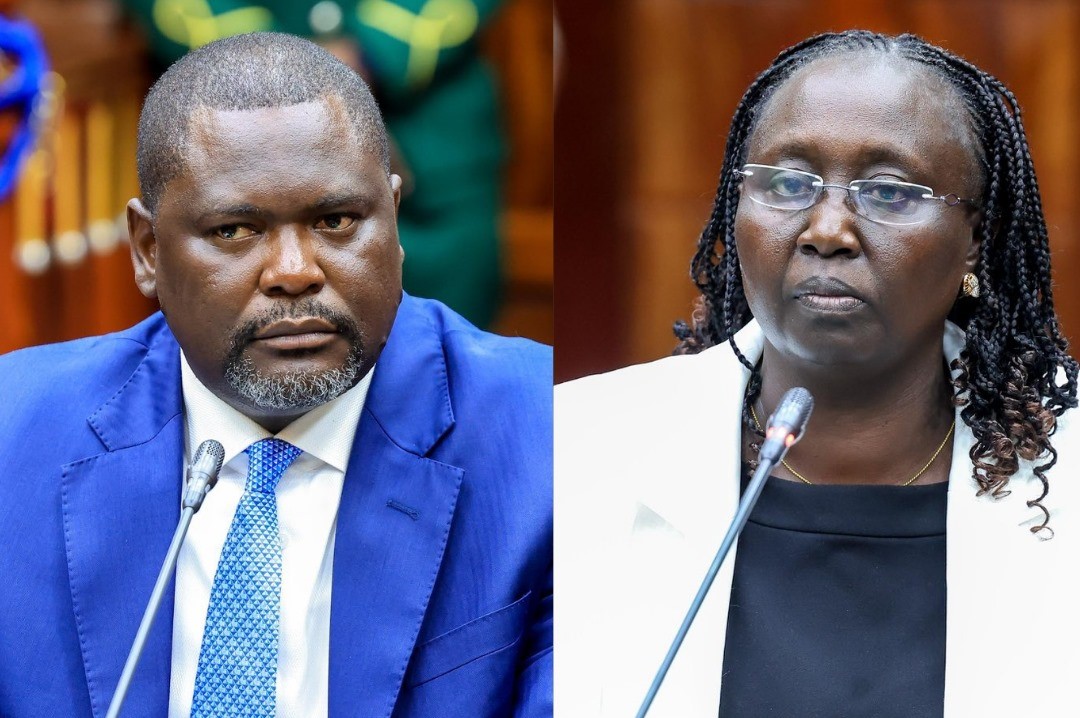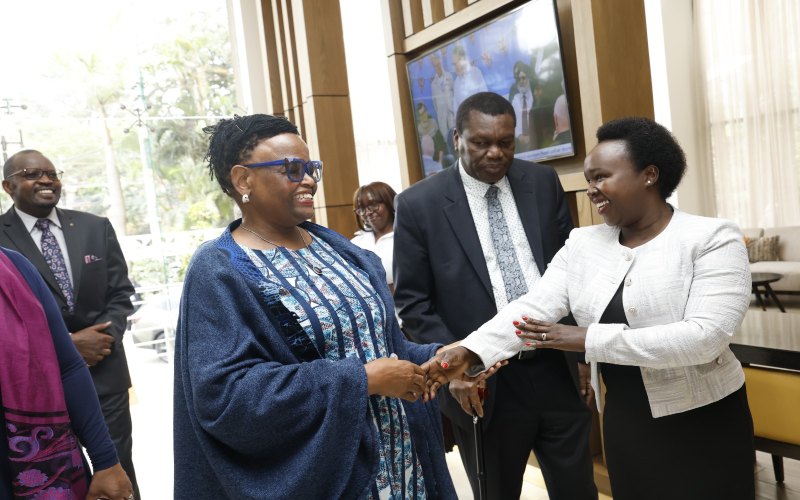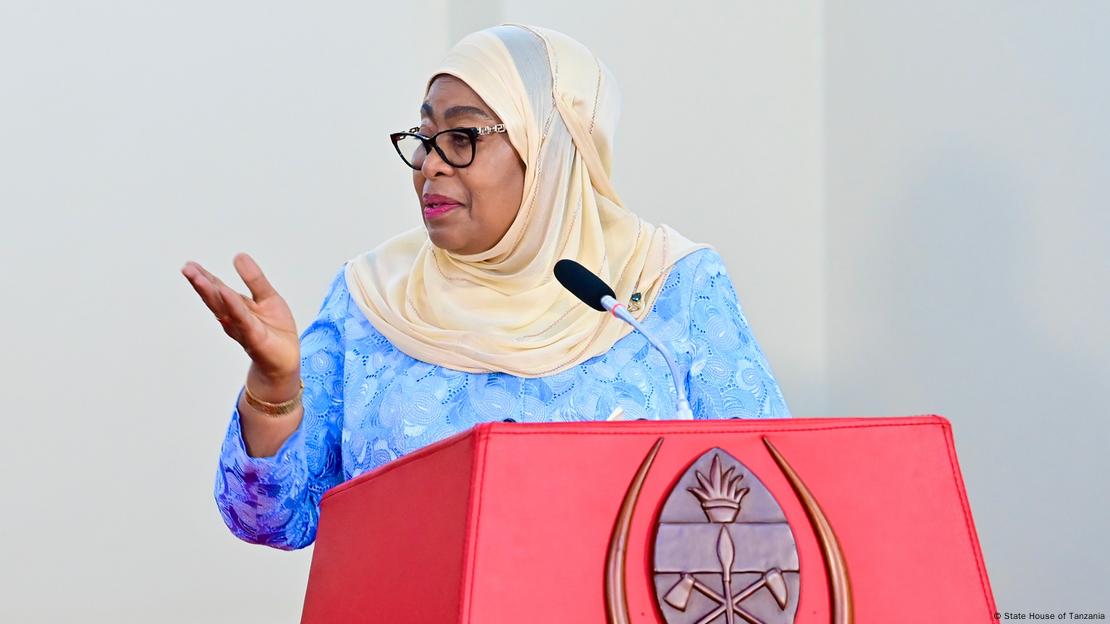National Assembly Committee on Appointments approves Ruku, Cheptumo for Cabinet Secretary positions

In its report, the committee noted that Ruku demonstrated a clear understanding of the administrative, technical and topical issues relevant to his docket.
The National Assembly Committee on Appointments has approved the nominations of Geoffrey Ruku and Hanna Cheptumo as Cabinet Secretaries, pending approval by the House.
The committee, chaired by Speaker of the National Assembly Moses Wetang’ula, vetted Ruku and Cheptumo on Monday and found them qualified for the roles of Cabinet Secretary for Public Service, Human Capital Development and Special Programmes, and Cabinet Secretary for Gender, Culture, The Arts and Heritage, respectively.
More To Read
- Bribery allegations, drama mar Mbeere North by-election
- Three senior NYS officials suspended in Sh2 billion scandal probe
- Government to reunite 44,000 children in private orphanages with their families by 2032
- Jubilee Party to back opposition candidate in Mbeere North mini-poll
- Govt plans to scrap repeated fingerprint requirement for clearance certificates
- Petition to move Jomo Kenyatta’s remains from Parliament put on hold
In its report, the committee noted that Ruku demonstrated a clear understanding of the administrative, technical and topical issues relevant to his docket.
It further stated that he possesses “the requisite abilities, academic qualifications and professional experience to be approved for appointment.”
On Cheptumo, the report echoed a similar assessment, affirming that she exhibited “knowledge of topical, administrative and technical issues touching on the portfolio to which she had been nominated.”
The committee said she, too, had met the necessary threshold in terms of expertise and qualifications.
“Having considered the suitability of the nominees for appointment during the approval hearings,” the committee stated, “the House is recommended to approve Geoffrey Ruku for appointment as Cabinet Secretary for Public Service, Human Capital Development and Special Programmes; and Hanna Cheptumo for appointment as Cabinet Secretary for Gender, Culture, The Arts and Heritage,” reads the report.
The nominations now await formal approval by the full National Assembly before the two can be sworn into office.
Experience
During his appearance before the committee, Ruku cited his two-and-a-half-year tenure as Member of Parliament for Mbeere North, saying he had adhered to the national values and principles of governance outlined in Articles 10 and 232 of the Constitution. He pledged to continue upholding these principles if approved.
He also highlighted his legislative contributions, including the Anti-Corruption and Economic Crimes (Amendment) Bill, 2023, which aims to streamline the anti-corruption process while making it less punitive for minor procurement errors.
He emphasised the need to strengthen public service delivery through training.
“Training of public servants is a key component in ensuring effective public service delivery. I will use the Kenya School of Government to equip officers with relevant skills,” he said.
Addressing previous remarks, Ruku clarified his past statement accusing the Teachers Service Commission of corruption, explaining that it was based on complaints from teachers who alleged they were denied promotions due to bribery demands. He also explained his initial support for the Motor Vehicle Circulation Tax, saying the proposal was later withdrawn following public consultations.
He cited his background as a lecturer, director at Climate Pal Ltd, and MP as having given him broad exposure to issues affecting marginalised communities. He pledged to promote fair recruitment, ethnic inclusion, gender equity and disability mainstreaming in public service.
Ruku also committed to addressing the public wage bill, calling it unsustainable. He promised to digitise HR systems to eliminate ghost workers and improve productivity. Additionally, he pledged to introduce a reward framework for innovative civil servants, strengthen the mandate of independent commissions, improve Huduma Centre services, promote the absorption of interns and harmonise the retirement age across public institutions.
On the Inua Jamii programme, Ruku said it plays a vital role in supporting older persons and vowed to ensure it is well-targeted and free from politicisation. He also backed lifestyle audits in the civil service to enhance accountability.
On the controversy surrounding the classification of muguka under miraa, Ruku clarified that it was an initiative by the Ministry of Agriculture and not a personal legislative push, noting that both fall under the same botanical classification, catha edulis.
Cheptumo's defense
On her part, Hanna Cheptumo defended her suitability by highlighting her 14-year tenure at the Ministry of Cooperative Development. She said she is committed to working closely with Principal Secretaries and departmental heads to strengthen her leadership in the ministry.
When asked about balancing public duties with personal commitments, Cheptumo said she would resign from her legal practice if appointed but would continue teaching at her church on weekends.
She pledged to bolster the government’s response to gender-based violence (GBV), including establishing one-stop GBV desks in public hospitals.
“We must start tackling GBV at the grassroots by involving religious leaders, MPs, MCAs, and county governments,” she said.
Cheptumo linked femicide to economic dependency, stressing the need for financial empowerment and education to help women escape abusive situations.
“Economic empowerment and access to education are critical in protecting women from abusive relationships,” she added.
She also committed to addressing harmful cultural practices such as early marriage and female genital mutilation (FGM) by expanding access to education and Technical and Vocational Education and Training (TVET) institutions.
Cheptumo vowed to advocate for increased funding for the Gender Ministry and to pursue partnerships and sponsorships to support underfunded programmes. She urged Semi-Autonomous Government Agencies (SAGAs) like the Bomas of Kenya to work towards self-sustainability.
On promoting peace in the North Rift, she called for a cultural shift away from cattle dowry traditions and encouraged the adoption of alternative livelihoods such as farming.
Regarding the two-thirds gender principle, Cheptumo acknowledged that while counties had met the constitutional requirement, Parliament had not. She proposed amending Articles 97 and 98 of the Constitution to introduce top-up seats and ensure compliance.
She also pledged to champion the arts and cultural heritage, promising better remuneration for artists, the organisation of county-level cultural days, and collaboration with the Ministry of Tourism to promote heritage sites. She committed to pushing for the passage of the Culture Bill and the Heritage and Museums Bill.
On women’s economic empowerment, she said she would continue to support the cooperative movement and advocate for the proper utilisation of affirmative action funds. She also promised to align ministry policies with Vision 2030 and the Sustainable Development Goals (SDGs).
If appointed, Cheptumo said she would audit museum artefacts and advocate for the repatriation of those held abroad.
Top Stories Today
















































